There are some really important questions to ask when buying a Shopify store. After all, the reason why you buy a Shopify store in the first place is to “skip” the frustration of building the store or making the store successful.
There’s a lot that goes into turning an idea into a successful Shopify store. By a successful store, I mean a store that makes at least 20% profit.
Building the brand, sourcing the products, building your traffic, fulfilling orders, doing customer support and growing your product line are all massive tasks.
If you’ve never been through this process then you may be very tempted to just buy a successful store. Why go through all this trouble?
If you have never built a store or have little to no Shopify or eCommerce experience then I would urge you to think twice before you spend good money on buying a store.
Going through each of the processes involved in building, running and growing a Shopify store teaches you what you need to learn – and the learning curve can be steep.
When you build something from scratch there is a deeper understanding of everything involved in the business.
In saying that, nobody is good at everything. Getting a partner or outsourcing the things you suck at is the way most entrepreneurs operate.
Nothing wrong with that.
If you do want to buy an established Shopify store which will cost anything from $20k upwards then you need to make sure you have at least one of the skillsets required to make the business flourish.
You may have intimate knowledge or passion for the niche or industry. You may be technically very good with Shopify and hacking it for more sales. You may be great at Facebook Ads or at running a team and managing a business.
With any one of these skills, you can take a mediocre Shopify store and turn it into a huge success. There’s a lot of good (and cheap) labor for hire online and they can help you fix anything.
I’ve written about the different types of Shopify stores you can buy before. Make sure you read that article too. What I will say though is that the mindset of buying a starter Store is very different from buying an established store that is claiming to be a profitable business.
I’ve read so many horror stories of people buying Shopify stores for $50k plus only to find out that it hardly makes any money once they take over the reins.
General Questions To Ask When Buying A Shopify Store
1. Where Do You Get Your Traffic From?
The first question I always ask is where does the store get its traffic from. If it is getting organic traffic, then it piques my interest immediately.
Organic traffic would mostly be from search engines or from Social media like Pinterest or Facebook.
I want to see a store that gets at least 60% of its traffic from Google if I am evaluating a store with organic traffic. Email traffic from a newsletter is on par in terms of quality – most of the time with Pinterest traffic not that far behind.
If a store relies exclusively on paid traffic then you need to calibrate your BS meter immediately. Paid traffic very fickle. It relies on a very specific skillset and it relies on a lot of money and experience.
2. Who Is Managing Your Traffic?
All forms of traffic require work – even SEO. If a store owner is a lone wolf and he is doing it all himself then I proceed with caution. They probably have the unique knowledge, skill, and experience that caused the store’s success.
For them to “teach you” or to transfer the skill to you as the new owner is near impossible. I see a lot of stores being sold on Flippa where the wonders promise to “teach” its traffic strategies.
If the store is using an agency to manage its traffic then it becomes much more attractive. This means there can be a smooth transition from one owner to the next without any disruptions to the store.
I like this so much better because you can have a conversation with the agency before you sign on the dotted line to become the new store owner.
This is the most reliable way to buy a Shopify store that gets most of its traffic from paid ad networks like Facebook Ads and Google Ads.
3. How Long Have You Been In Business?
I like to see a store that has seen at least 2 full years of trading with some sort of success. The reason why is because you want to look for seasonal trends.
If the store does insanely good in summer months and really poor in winter then you want to know that and plan for it.
All online stores have some sort of seasonality and most crush it over the Xmas period. Unless a business has seen 2 full years of business it is very hard to see definite patterns of seasonality (you can check Google Trends as well)
4. Can I See Your Shopify Analytics?
Shopify Analytics gives very accurate breakdowns of every aspect of the store. There are many reports you can generate to show every aspect of the store.
Here are some of the most important reports to ask for:
- Sales over time – gives you a month-by-mont breakdown of gross sales and net sales
- Sales by product – shows you which product(s) performed best over time
- Profit by product – gives you a breakdown of costs, shipping, tax and net profit
- Sales by traffic referrer – shows you what traffic channel generated the sales
- Sales by billing location – which countries and states that generated sales
- Finances summary – shows profits, taxes and refunds
- Total Payments – this report shows refunds overall
The most important things you want to look out for are:
- Profit versus sales. Many stores will advertise how much they made but this is rarely true profit
- Returns – a store with a high rate of returns may have issues with the products
- Refunds – high refund rates can kill a business. There could be an issue with logistics or the products themselves.
- Store Conversion Rate – make sure there are no dramatic spikes or dips
- Returning Customer Rate – Make sure this is at least 10% (unless they have no follow-up emails)
- Chargebacks – Chargebacks are when customers dispute the charges with their credit card. These are much worse than refunds.
- Unfulfilled orders – you don’t want to buy a store that has a huge backlog of unfulfilled orders.
5. Can I See Your Google Analytics
Google Analytics can be very powerful for eCommerce businesses – especially if they run Google Ads or get organic traffic from Google.
Google Analytics is a topic on its own and has become fairly complicated. On a basic level, I like to cross-check the Shopify Analytics with the Google Analytics.
It won’t be 100% a match but should be close enough. Big discrepancies between the two should send some alarm bells ringing. There are ways to fake Shopify stoats and checking the numbers against Google Analytics is a safety net.
6. Can I See Your Facebook/Google Ads Report?
If a store is getting its traffic from paid channels like Google Ads or Facebook Ads then you need to match up these reports to the Shopify reports.
You will basically use this to get a better sense of the store’s profit.
It is the only definite way to see how much a store truly spend on buying its traffic. It is not uncommon for store to have big sales numbers but very low-profit numbers.
This is mostly because buying traffic can be expensive – often to the point where profit is slim.
Questions To Ask When Buying A Shopify Store That’s Dropshipping
Buying a Shopify store that is dropshipping will require some different investigations and more specific questions to ask.
Dropshipping stores tend to sell for much less than most other online businesses in terms of its multiple. The main reason for this is that dropshipping stores can get copied quite easily.
They are also open to a lot more risks – especially when the products are dropshipping from China.
1. Are You Dropshipping From Aliexpress?
If the answer is “yes!” then check how long they have been using the same supplier and what the relationship is like.
You also want to check and make sure that there are alternative suppliers on Aliexpress should you run into issues with the current supplier.
2. Do You Have an Agent or Fulfillment Partner
Many dropshipping stores have moved away from Aliexpress and in my opinion these are better stores to buy.
If they use a fulfillment partner like CJ Dropshipping or Udroppy then you want to make sure you can get access to the same service (with these 2 companies it’s usually not a problem).
If they have a private agent then you want to make sure that you get access to the agents as part of the package.
If they use warehousing and fulfillment in the USA then you want to make sure you see invoices of them purchasing stock and make sure you can take over the warehousing solution to ensure a seamless transition.
3. Have You Ever Had an Account Banned?
Dropshipping stores are getting accounts shut down left, right, and center these days. Facebook Ads and Google Ads have become very difficult to work with as a drop shipper because they shut down accounts rightly and wrongly on a daily basis.
Once a store had its account shut down it can be very hard to continue with that store as it is. It often needs new domain name.
If a store had Stripe or Paypal account shut down before then I would be even more concerned. This is usually a much more serious issue and one that will remain attached to that store and there’s no real getting around that.
4. Have you ever received any DMCA notices?
DMCA notices are takedown notices that are usually a slap on the back that asks you to remove content that infringes on someone’s copyright.
I’ve seen this happen with Aliexpress products that were knockoffs of some bigger brand. While a DMCA won’t necessarily be connected to the store in a legal sense it does spell trouble for the product(s) and how legit they are.
Questions To Ask When Buying A Shopify Store That’s Doing Print On Demand
Personally I like buying a print on demand store much more than a traditional dropshipping store. While both are dropshipping business models, a print on demand store usually have much more value.
A print on demand store relies on its own design which is a massive asset The quality of products are usually much higher and most of the time it gets printed and fulfilled in a matter of days.
There are some specific questions you should ask when buying a print on demand store.
1. Where did you get/buy your designs
Most stores get their designs done in-house or use freelance designers. If a store is publishing designs from stock images, make sure they can provide you with the licenses. Without it you can be in big trouble.
If they bought designs from Fiverr then I would be cautious. Many freelance designers on Fiverr “double dip” and they simply re-sell their designs multiple times.
There are some really good ones on Fiverr though so proceed with caution.
2. Can I Get All The Original Artwork
Getting the original artwork used in all the products is super important. Not only does it allow you to expand the product line but it is an important backup if you ever need to re-create your catalog.
3. Who Is Your Fulfillment Partner?
Printful, Printify, Teelaunch, Gooten, and Customcat are the main names in the print on demand space for apparel. ShineOn is the biggest name in print on demand jewellery and a few smaller ones that are really good.
You want to make sure you don’t need to switch partners as this can cause a LOT of work.
PillowProfits, ArtsAdd and a few more lesser known apps are actually based in China. Be very careful with these as this could cause you similar fulfillment headaches you have from working with Aliexpress.
4. Have you ever received any DMCA notices?
DMCA notices are much more common for print on demand products than for dropshipping products.
The designs you place on apparel and other products usually have to be catchy. Using popular names and trending topics usually sell much better than even the best designs.
There’s a fine line to tread with copyright infringement but it is a really important issue. You do not want to buy a store where the best products are infringing on copyrights. This can shut you down overnight of you piss off the wrong person/company.
Even if a store has not seen any DMCA notices, you need to pay very close attention to their best selling products to make sure there is no copyright infringement.
Where To Buy a Shopify Store
There are 3 main places to buy a Shopify store. These are not the only places and you can find stores for sale from many other marketplaces.
Flippa, Empire Flippers and The Shopify Exchange are the 3 most used and most trusted places to buy an established eCommerce business.
There are also starter Shopify stores that you can buy from many different places online including Fiverr, BeBiggy and eCommerce Paradise.
1. Flippa
Flippa is the entry-level exchange where you can buy almost any digital asset. It is cheap to list a store for sale and the success fee is also very low.
Flippa tends to attract more lower quality stores for sale but I have seen a few gems.
2. Empire Flippers
Empire Flippers is similar to Flippa but at a much higher level. They are much more hands-on in helping you sell a store but they also take a much higher fee.
Unlike Flippa, you rarely see cheap stores for sale here and if you buy from them you can have a lot more certainty in what you buy.
3. Shopify Exchange
It goes without saying that the Shopify exchange will give you the most accurate information about the stores that are up for sale here.
They provide you real and accurate Shopify analytics which makes it very transparent. They have a lot of dropshipping stores for sale but also a lot of real high-quality stores with USA suppliers in place.
Questions To Ask When Buying A Shopify Store – Conclusion
These are some of the most basic questions to ask when buying a Shopify store. While you can rely on the 3 exchanges/marketplaces I mentioned above to provide you with real and accurate information you need to do your own due diligence.
You also have to know WHY you want to buy a Shopify store? At some level, you should know where/how you can improve a store.
Very few people are good at starting a store AND good at managing it and growing it. Most people are good at one or the other.
If you want to buy a Shopify store simply because you want to buy an income then you need to think twice. If you don’t bring some sort of knowledge and experience to the business then it probably won’t make it.
If you buy a store that relies on you having to learn a new skill like running Facebook Ads to replicate the store’s success then you need to proceed with caution.
If the store is in a niche or industry you know nothing about, then I would proceed with caution.
If the store has only been around for a few months then I would proceed with caution.
If the store tapped into a (dying) trend then I would proceed with caution.